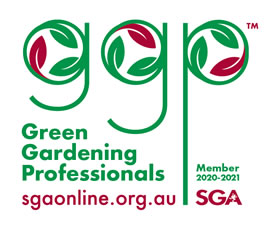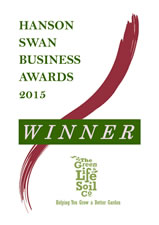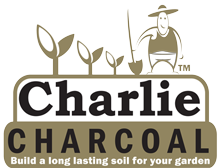| item(s), Total: $0.00 View Cart |
| Shopping cart is empty. |
Spring gardening guide for Perth

Spring is a fabulous time to get in the garden in Perth. Mild weather, increasing daylight hours and a little bit of rain make it ideal for plants. It's the perfect season for refreshing our gardens and setting up new garden beds. Plants respond to the warming weather with a flush of new growth and flowers - spring is in the air!
If you’re itching to get outside and connect with nature but don't know where to start - we've got some helpful ideas for your Spring Perth Garden.
1.Trim, prune and refresh. Divide up perennial plants by digging up the clump and trimming off old or dead growth. You may be able to split the root mass and get free plants to use elsewhere in your garden! Pruning and dividing plants will give things a new lease on life, and you’ll have some extra space for new plants & allow better airflow for those that remain – meaning less potential for fungal disease. Anything diseased - put in the bin. Remove spent crops and weeds – especially before they go to seed. Spring cleaning isn't confined to indoors - it's time for a tidy-up outside too. (The bonus is your garden will be looking lovely for the Christmas party season!)
2. Consider what you want to grow, and plan the best places to do it. Check out our crop rotation fact sheet and our companion planting fact sheet - they may give you some ideas to plan the position for your new season crops. Remember that in spring, plants will thrive with sunlight; but with summer just around the corner, you may need to think about how you can provide protection in another few months. Once you have a rough idea of what you want to plant, you can also consider the nutritional requirements of the plants, and think about what you need to do to top up fertility. It's best to do this before you plant. Some vegies are 'hungrier' than others. There's more info about this in the crop rotation sheet. Generally leafy greens and fruiting plants need different nutrients than legumes (peas/beans) and root crops. Want to know what vegetables to plant in Spring? Sign up for our FREE When to Plant guide here.
3. Make sure your soil isn't water repellent. You’d think that after winter, the soil will have a good bank of moisture built up – but sometimes this isn’t the case. Do some digging and make sure that the soil below the top 10cms is moist. If it’s dry, or if you know that spot in the garden is not great in the summer, now’s the time to fix this. Add clay and/or biochar (we use it in the soil concentrates we make at GLSC) and using a good quality soil wetter product will help. Clay (Cassies Clay) and biochar (Charlie Charcoal) hold many times their own weight in water - these water holding minerals act like a sponge - and will keep water there where the roots are going to grow. Do come in and speak with us if you're having issues - Perth's sandy soils are tough! Feel free to bring in soil samples (no more than about half a litre is needed) and we can play with incorporating inputs to demonstrate the difference they will make to your garden. We have Perth's best organic soils - so let us show you how we can help.
4. Add OM (organic matter). If you have typical Perth soil (sandy & lifeless) you will need to add compost and/or manure to re-introduce soil microbes and to provide nutrition to your plants. Adding clay and/or biochar (Charlie Charcoal) will also help keep the nutrients in the soil longer and greatly improve the soil structure. Minerals are permanent soil additives; your compost and manure will break down over the season and disappear. Our unique soil concentrate recipes are designed to be incorporated through your garden to replenish nutrients - they contain a blend of compost, manure and a tailored mix of minerals (including clay & biochar) to promote long term growth and water holding; while boosting habitat for beneficial soil microbes. We've done the hard work for you by creating a ready to use blend of goodies. Again - if you're not ready to plant out straight away; keep the soil mulched and watered to keep the soil moist. No need to overdo it, but don't allow it to dry out or the biology will suffer.
5. Get ready to plant! If you're using fresh compost or manure you've sourced - don't plant directly into it. Often fresher products will have a high pH which can impact plant health learn more in our fact sheet. Fresher OM will continue to break down in the coming weeks, but plant out your seeds or seedlings into a little basin of soil or potting mix to get the roots growing in the meantime. A handful of worm castings incorporated into the planting hole works really well, too. Give new seedlings a dose of kelp fertiliser - it helps with transplant shock and once again boosts soil biology. You may wish to do this every few weeks - particularly with fast growing leafy green crops, which benefit from a bit of extra feeding throughout their life. If you’re concerned it’s too early (and cold) to plant out summer crops directly, raise seeds in pots or trays where you can keep them protected. Transplant them to their spot in the garden once they have grown into strong seedlings. Remember to label your seedling trays with the variety and date so you can keep track of what you’ve planted. We've got a fact sheet about growing from seed here.
6. Mulch. If you're planting established plants and trees, it's a good idea to mulch your new plantings. If you're growing from seed, keep mulch OFF your garden until seeds have emerged and seedlings are about 10cms tall. Mulch will prevent germination and may encourage pests like slaters who can damage young seedlings. Making sure they're more established will give them the best chance of success. Particularly vulnerable seedlings may benefit from some DIY collars - made from plastic bottles or containers over each seedling to help keep pests away. Iron based pellets like Multiguard or our Certified Organic Protect-us pellets will help with slugs, snails and slaters. A light sprinkling around new plantings is a good idea. Once seedlings are established, mulch is essential – especially as the sun gets more bite to it. Want to know what mulch to use? See our fact sheet here.
7. Monitor for pests and diseases. Hopefully, giving your plants the best start will ensure healthy growth. Keep an eye on them as they grow and if there's signs of any pests or disease, investigate further and decide if it's something that needs treating - sometimes, issues are seasonal. Some low toxic treatments can be made at home - see our tips & recipes for pest control here. If you're wanting to reduce the use of chemicals in your garden, acting early and being aware of your options is important. Ask at your local nursery (or come and visit us) if you need help - we're Perth's Organic gardening specialists, and we'd love to make sure you're having success in your Spring garden. Whether you're growing veggies, herbs or ornamental plants this time of year in Perth - we can help.
Want to know what to plant NOW in Perth? Sign up for our free downloadable chart - we've got one for 'What to Plant Now' for Vegies & one for herbs.
Download our FREE 'Top 12 Edible Plants for Spring/Summer - become a VIP member & sign up now for access and to receive our monthly newsletter with more seasonal growing advice for Perth!
Get Growing Today!
Come on in!
Pick up bags or bulk product
bring your trailer (or use one of ours)
Opening hours:
8.30 - 4.00 Monday - Friday
8.30 - 2.00 Saturday
(closed Sunday)
Shop Online - We Deliver
24/7 convenient & secure online shopping or support your local independent retail outlet. Join our Newsletter for Perth gardening advice and exclusive offers.
Get Growing
We guarantee our products. Ask our friendly staff for help & advice ~ we're here to help you achieve the garden of your dreams.
























